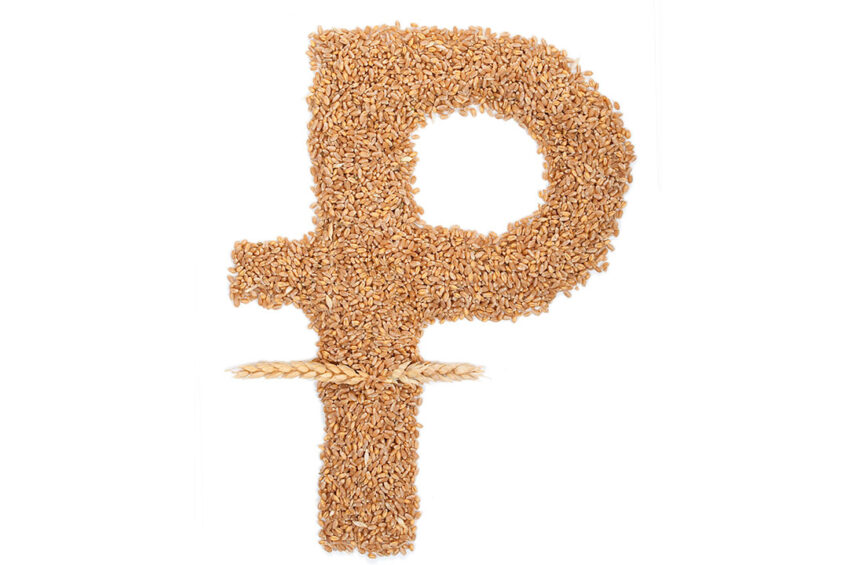Russian wheat price falls

The price of Russian wheat fell on the world market at the beginning of this week. Last week, Russian agricultural consultancy SovEcon raised its wheat crop forecast from 87.1 million tonnes to 92.1 million tonnes in its latest monthly report.
The larger harvest, in combination with record stocks, will stimulate exports, resulting in price pressure on the world market. Due to price pressure in Russia, futures quotes in Europe fell this week to remain competitive despite the fact that estimated yields of winter cereals in Europe are below last year’s level.
The European Commission estimates that the quality of wheat in northern Europe will not be so high. For example, the volume and quality of grain in Germany is disappointing. The disappointing European yields did not prevent wheat prices from falling.
Lower euro gives European wheat an advantage
Lower prices on the world market prompted Egypt to issue another tender. In the end, 60,000 tonnes of Romanian wheat were purchased. And with that, Russian bids have been rejected. European wheat has become more interesting, partly due to the weaker exchange rate of the euro. The value of the euro is at its lowest level in 2 months against the US dollar.
The longer-term trend is also that the exchange rate of the euro against the US dollar is weakening. This provides support for the European market, as a result of which European grain can be offered cheaper on the world market.
US corn prices under pressure
Corn prices are also under considerable pressure. In the Midwest of the United States, it is very hot and dry. The heat wave continues with temperatures of 40 degrees or more. Nevertheless, good yields are expected.
The second corn harvest in Brazil (safrinha harvest) is progressing smoothly, which may result in a record yield.
The unrest in the Black Sea region continues
On Wednesday, 23 August, facilities in Ukraine were again attacked by Russian drones used for the export of grain. In the south of Ukraine in the Danube area, grain stores, among other things, have been damaged, says Odesa governor Oleh Kiper. The Danube has become a major export of Ukrainian grain since the grain deal with Russia for export across the Black Sea was not renewed. Explosions have also been reported in Moscow due to drone attacks.












